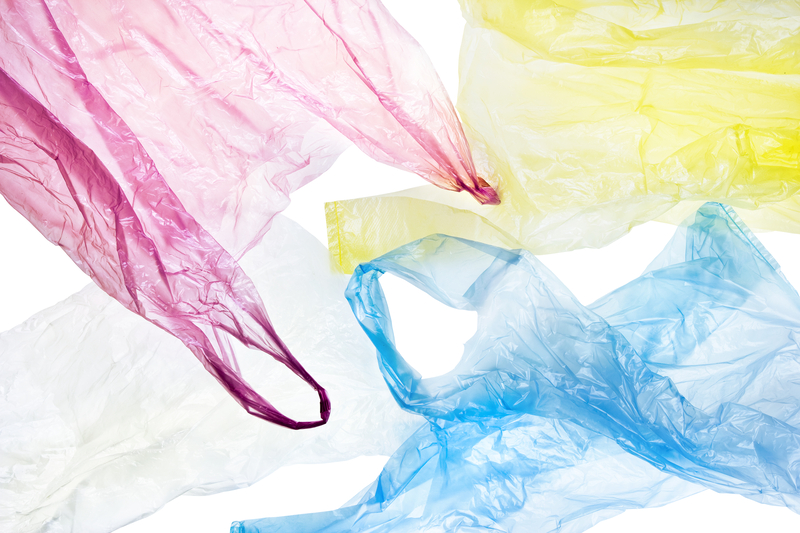Why Responsible PPE Waste Disposal Matters for Public Health
Personal Protective Equipment (PPE) has become a household term due to the COVID-19 pandemic, highlighting its vital role in safeguarding public health. Yet, while its use is crucial, the way we dispose of PPE is equally significant. Irresponsible PPE waste disposal poses serious risks--not just to the environment, but also directly to our communities' health. This comprehensive article delves into the reasons why responsible PPE waste disposal matters for public health, the associated risks, current challenges, and how we can adopt best practices to protect our society.
Understanding PPE and Its Importance
PPE waste primarily consists of masks, gloves, face shields, gowns, and other protective materials. With billions of people using these items daily in healthcare settings, workplaces, schools, and public spaces, the sheer volume of PPE waste has skyrocketed. While PPE has served as a frontline defense against infectious diseases, improper disposal of PPE could become a public health threat in itself.
What Is PPE Waste?
- Single-use masks (surgical or N95)
- Disposable gloves (latex, nitrile, or plastic)
- Face shields and visors
- Protective gowns and aprons
- Other protective coverings
These items are designed to be discarded after use as they can be contaminated with hazardous pathogens or chemicals, making their proper disposal essential for protecting public health.

How PPE Waste Affects Public Health
Why does responsible PPE waste management matter for public health? The answer lies in a chain of consequences that can directly and indirectly affect community well-being.
Direct Health Risks of Improper PPE Waste Disposal
- Infection Transmission: Discarded PPE can harbor viruses, bacteria, and other pathogens, increasing the risk of disease spread, especially for waste handlers, sanitation workers, street cleaners, and the general public who might come into accidental contact.
- Community Exposure: When PPE waste is not separated from regular garbage, the pathogens on it can find their way into homes and public spaces, exposing vulnerable groups such as children and the elderly.
- Healthcare System Stress: Cases of infections traced back to mismanaged PPE waste put additional pressure on health services already stretched by public health crises.
Indirect Public Health Impacts of PPE Waste
- Microplastic Contamination: Most disposable PPE items are made from plastics. Over time, they break down into microplastics, contaminating water supplies and entering the food chain, posing a long-term health risk.
- Wildlife Health and Zoonotic Spillover: PPE pollution in the environment can be ingested by animals, causing injuries or death. Further, as PPE waste accumulates, it increases opportunities for cross-species transmission of pathogens.
In summary, responsible PPE waste disposal protects both immediate public health and the broader ecosystem on which we depend.
Environmental Impact of PPE Waste
It's important to recognize that PPE waste disposal is not just a matter of infection control--it's also an environmental issue with serious public health consequences.
PPE as a Source of Pollution
Since most PPE is made from non-biodegradable materials such as polypropylene, it can persist in the environment for decades. Discarded masks and gloves can clog drainage systems, increase the risk of flooding, and introduce harmful chemicals into soil and water. When PPE is incinerated in uncontrolled ways, it may release toxic gases like dioxins and furans, further jeopardizing air quality and community health.
Impact on Waste Management Systems
- Overburdened Landfills: The sudden surge in PPE waste, especially during pandemics, puts extra load on already stretched landfill capacities.
- Recycling Challenges: Many PPE items are not recyclable through conventional programs due to contamination. Mixing them into regular recycling streams can disrupt recycling processes and contaminate recyclable materials.
- Increased Waste Handling Risks: Improper PPE waste handling can expose waste pickers and other workers to infection hazards, putting essential members of our communities at risk.
Best Practices for Responsible PPE Waste Disposal
To reduce the public health risks of PPE waste, communities and individuals can adopt a range of best practices:
For Individuals
- Do Not Litter: Always dispose of masks, gloves, and other PPE in bins with secure lids. Never discard PPE in public spaces, waterways, or toilets.
- Separate PPE Waste: Whenever possible, keep PPE waste separated from regular household trash. Use clearly marked bags or containers labeled for PPE waste.
- Follow Local Guidelines: Many local governments provide clear instructions for safe PPE disposal. Adhere to these rules to minimize risks for sanitation workers and others.
- Cut the Straps: On masks or gloves to prevent accidental entanglement of wildlife if the PPE reaches the environment.
For Businesses and Institutions
- Install Dedicated PPE Bins: Place marked, touch-free disposal bins in high-traffic areas for used PPE.
- Employee Training: Conduct training sessions on safe PPE handling and disposal protocols for all staff.
- Engage Professional Waste Services: Partner with certified biohazard waste disposal companies for regular and safe collection of PPE waste.
For Healthcare Facilities
- Strict Waste Segregation: Classify and separate infectious from non-infectious PPE waste at the point of origin.
- Timely Removal: Remove filled PPE waste containers regularly to minimize contamination risks.
- Proper Labeling: Use clear, visible labels indicating "Infectious Waste" on all PPE disposal containers.
The Importance of Public Awareness and Community Engagement
Even the best PPE waste policies are only effective when embraced by the public. Community engagement and education campaigns help ensure widespread participation in safe PPE disposal practices.
- Awareness Campaigns: Governments, NGOs, and health organizations should run public information campaigns to explain the dangers of improper PPE waste disposal and teach effective disposal habits.
- School and Workplace Programs: Integrating PPE waste education into school curriculums and employee training can foster long-term positive habits.
- Clear Signage: Placing instructional signs at waste bins in public spaces guides proper disposable PPE behavior.
Innovations and Sustainable Alternatives
As the world grapples with the dual challenges of public health and environmental protection, innovative solutions for PPE waste disposal are being developed:
- Biodegradable PPE: Some companies are introducing masks and gloves made from compostable materials, which break down faster and reduce environmental impact.
- Reusable PPE: Where feasible, washable and reusable forms of PPE can significantly reduce waste generation.
- Advanced Incineration and Sterilization: Modern incinerators and autoclaves safely process PPE waste, neutralizing pathogens and minimizing pollutant release.
- PPE Recycling Programs: Specialized programs that collect and process single-use PPE into new products are emerging, though these require strict controls to manage contamination risks.
International Guidelines and Local Policies
Organizations like the World Health Organization (WHO) and Centers for Disease Control and Prevention (CDC) provide clear guidelines for safe PPE waste management. These recommendations help local authorities develop informed, science-based policies tailored to their specific contexts. For example, the WHO recommends that PPE used by healthcare workers should be treated as infectious waste, while community PPE waste should be safely bagged and kept out of reach of children and animals before being added to household waste.
Creating Effective PPE Waste Policies
Local policies should adapt global guidelines to address specific needs, urban density, and available resources. Key considerations include:
- Accessible PPE Waste Bins: Sufficient and clearly marked disposal points in public spaces.
- Regular Collection: Frequent pick-up and timely disposal to avoid overflow or scavenging.
- Worker Protection: Ensuring sanitation workers have adequate PPE and training in safe handling of PPE waste.
- Penalties for Littering: Enforcing fines or penalties for improper disposal to deter dangerous practices.

The Global Perspective on PPE Waste and Public Health
The COVID-19 pandemic demonstrated how global events can rapidly intensify PPE waste challenges. Countries worldwide have faced increases in PPE-related litter, prompting new standards, collaborative strategies, and public-private partnerships for safe PPE waste management. Learning from these experiences, it is vital to maintain momentum in developing sustainable solutions to PPE waste that continue to prioritize public health for future generations.
Conclusion: Everyone Has a Role in Responsible PPE Waste Disposal
Why does responsible PPE waste disposal matter for public health? The answer is clear: It saves lives, protects ecosystems, and supports resilient communities. Whether you are a healthcare worker, business owner, government official, or everyday citizen, your choices have direct consequences for public health.
- Minimizing infection risks for sanitation workers and the public
- Preventing environmental contamination and microplastic pollution
- Upholding safe, resilient, and clean communities
- Ensuring that health crises do not inadvertently seed new risks through poor waste management
"Responsible PPE waste disposal is not just a matter of civic duty--it is a critical pillar of public health protection." By following best practices and advocating for better policies, we can safeguard today's communities and preserve a healthier world for tomorrow.
Key Takeaways:
- PPE waste disposal is vital for infection control and environmental health.
- Improper disposal increases health risks and contributes to pollution.
- Communities must adopt safe PPE waste management practices and support innovation in sustainable alternatives.
Let's all commit to responsible PPE waste disposal for a safer, healthier society.